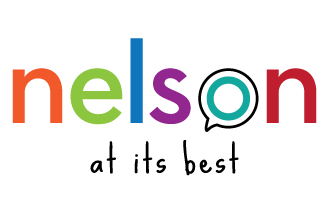Since forming, End Poverty Initiative has undertaken community education and political advocacy for an end to poverty by interacting directly with those living in poverty and/or work with other groups addressing aspects of poverty in community. It has worked to end poverty by better understanding the specific causes and consequences of poverty for people in Nelson, then using this knowledge to directly assist those living in poverty, and reaching out to community with simple, responsive and relatively inexpensive opportunities to mitigate, reduce, prevent, and ultimately end poverty in Nelson.
Here you can read more about poverty in Nelson British Columbia and the work + impacts of this initiative since its inception: http://archive.bestnelson.org/
CURRENT NEWS & UPDATES:
The Child and Family Poverty Action Group has been focusing on identifying those who want to work on the issue and join the action group, learning from each other about Nelson’s services to families, barriers to service, and sharing experiences with addressing poverty through the various service approaches. The group held a strategic planning day that will now guide their actions for the coming year, including doing a mapping project to help parents navigate services.
The Voices of Change Project
In 2018, the End Poverty Initiative obtained a significant grant from Columbia Basin Trust for The Voices of Change Project.
This project has the overall objectives of increasing resources and benefits into the hands of people experiencing poverty, generating skills building opportunities, and connecting economically vulnerable people and supporting their participation in community initiatives. The project is comprised of 3 sub-projects to meet these objectives:
#1: Community Cafés with Low-Income Parents
Isolation is a widespread consequence of poverty for parents lacking the economic means to participate in community (i.e. go out for coffee or join in an event or activity). Isolated parents are more likely to be overwhelmed by the challenges of providing for themselves and their children. Overwhelmed parents tend to isolate further rather than reaching out for community services and connections. This has potentially negative consequences for children who may also become isolated under these circumstances.
Emerging from work previously done during End Poverty Initiative’s’s 2017 “Voices of Lived Experience Project”, the Community Café strategy entails providing cash and cash-like benefits to low-income parent participants where trust, understanding, and mutually supportive relationships can develop. Café Coordinators will aim activities at connecting participants to opportunities available in the wider community. Participants will be encouraged to take advantage of funding for upgrading skills or implementing ideas they believe further the larger goal of ending poverty. These small projects will help participants in a variety of ways while providing a small but potentially impactful income supplement or work experience for someone in poverty. An earlier pilot of this approach found it to be an idea generator for a variety of helpful initiatives that the End Poverty Initiative, Nelson at its Best and the wider community could support and act upon.
Finally, Community Cafés will provide a vehicle through which parents can be informed of the services, entitlements (e.g. Canada Learning Bond) and other benefits for which they may be eligible. Work by End Poverty Initiative’s Child and Family Poverty Action Group suggests very poor awareness amongst low-income parents of these benefits. The Child and Family Poverty Action Group will consider how to make best use of the potential opportunities of this component of the Voices for Change Project.
#2: Youth Skills Builder
This activity involves the participation of up to eight low-income, poverty-vulnerable youth in a pilot program of financial literacy and employability strengthening. Qualified facilitators and mentors will work on design and content with participating youth in such a way that future groups, with minimal adaptation, can use the resulting curriculum. Participants will receive a monthly stipend for participation providing them with extra resources to budget during financial literacy training. Youth will also be provided with educational bursaries to assist them in implementing the goals they set for themselves during the program. Youth may choose amongst the wide variety of courses and training opportunities available locally or online in using this bursary. Where specific training is not available, efforts will be made to encourage its provision through NaiB partners. Youth will be informed and supported in connecting to other programs targeting skills development such as those offered through the Nelson and District Youth Centre, WorkBC and SkillsLink.
#3: Benefits Incubator
This component aims to build a network of employers interested in providing (unconventional) employee benefits to workers earning less than Nelson’s Living Wage of $18.20 per hour. A Network Launch Coordinator will work with businesses to determine a funding match that will make it both attractive and possible for employers to trial providing non-cash benefits to low-wage employees. Honoraria will be offered to low-wage employees to assist the End Poverty Initiative in assessing how these new non-cash benefits impact them. We are also interested in seeing whether the outcomes motivate employers to continue or possibly expand on the activities trialed during this initiative.
The work undertaken will connect employers to existing programs such as the Work BC Wage Subsidy and the Canada/BC Job Fund where possible. The specific focus, however, of this activity is on working with employers to better understand and act upon variety of innovative non-wage initiatives that support the working poor.

